All Inclusive
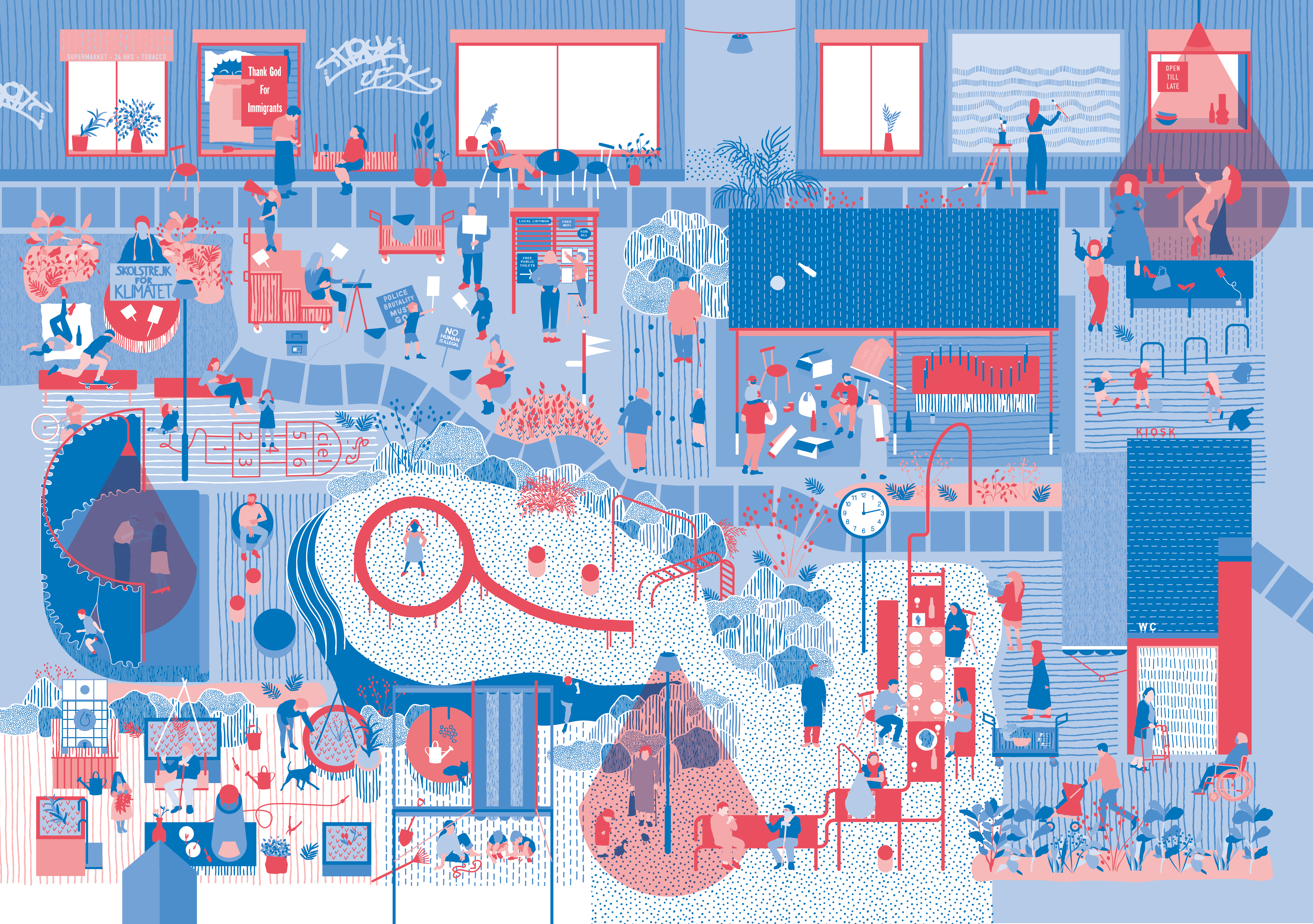
Our public spaces play host to the activities of the everyday. Networks of streets and spaces – from bustling high streets and markets, to playgrounds and parks, or scruffy neighbourhood corners that you often avoid – play a vital role in the social life of our cities and communities. Whilst you may think that public space is something that anyone can access, not everyone is equally welcome. The ‘publicness’ of an urban space is often shaped by the visible and invisible aspects of design, policy and politics. Spaces designed without seating from fear of attracting “undesirables” can often discourage the elderly (or your best friend who recently broke her leg falling off her bike) from spending time there. The idea of designing out crime often leads to designing out people. Pseudo-public spaces (where private owners call the shots) seek to regulate behaviour considered as “acceptable” and discourage the marginalised. You’ll have to film your skate videos elsewhere. Austerity and cuts to public services means that facilities like public toilets are now closed-for-your-business, thereby discriminating against those with health conditions, pregnant women, or those with weak bladders. Think twice about that extra cup of coffee before going outside to meet friends. Public spaces are also the sphere of public action, where you can meet in meaningful exchange with people outside your social media bubble and make your voices heard. With all of this in mind, how can we create more equitable spaces in our cities? This ‘public space charter’ is a prompt for space-makers to be facilitators of spatial justice and to consider discriminatory design and policy decisions. How can public spaces be ‘ALL INCLUSIVE’? They should:
Recognise that barriers to public space are not always physical • Not make you feel like you need to spend any money to be there • Encourage loitering • Be somewhere you can protest about how shit your government is • Allow children to be loud • Provide seating without worrying about attracting ‘undesirables’ • Have statues of not only men • Not have “pig’s ears” or “skate stoppers” • Not take the piss (have public toilets!) • Do more than just comply with accessibility legislation • Not favour cars over people • Recognise differences and treat them equally • Be a place to meet your first Tinder date • Not have green space under lock and key • Have flexible furniture, so it can be used in different ways each day • Seek progressive programming • Have free drinking water and wifi for all • Be wary of restrictive legal, policy and regulatory frameworks • Be where you meet people outside your social media echo chamber • Have space for displaying your missing cat/yoga session/‘Thank God For Immigrants’ posters • Not have anti-homeless spikes • Be places you can log your 10,000 steps – or sit and do nothing • Be where it is forbidden to put up signs forbidding things • Treat kids as citizens and decision makers • Reject “pay-to-play” events / performance spaces that exclude those who can’t afford them • Encourage local commissioning • Not require a “tables and chairs” licence or “street activities permission” • Be free from yellow-vested busybodies • Not be a tick-box afterthought when seeking planning permission • Work around the clock and support night-time uses • Not have things named after slave traders • Be where you can give out crowdfunding leaflets for your pop-up LGBTQ+ bar without needing prior approval • Not be one-size-fits-all • Be somewhere to charge your phone • Allow day-drinking/summer kerb beers • Make room for the non-human • Be where you can draw on the pavement • Have clear and legible wayfinding • Not have curfews • Provide shelter from the sun, the rain – or your annoying housemates • Be where ball games are allowed • Not steal your data • Be surrounded by active uses – not blank walls • Encourage local stewardship • Build social capital • Be where you can sell your lockdown-made banana bread without a permit • Reduce ‘Bowling Alone’ by boule-ing together • Be spaces for friction • Be somewhere you can breastfeed • Not be a purified arena • Be where play is integrated and not restricted to ‘gymnastic activities’ • Recognise the power of the informal and the impulsive • Be a canvas for public art • Have things at different heights and sizes, to accommodate all ages and abilities • Not contribute to the climate crisis • Be where you feel comfortable in the presence of strangers •
Mark David Flynn and Cristina Gaidos
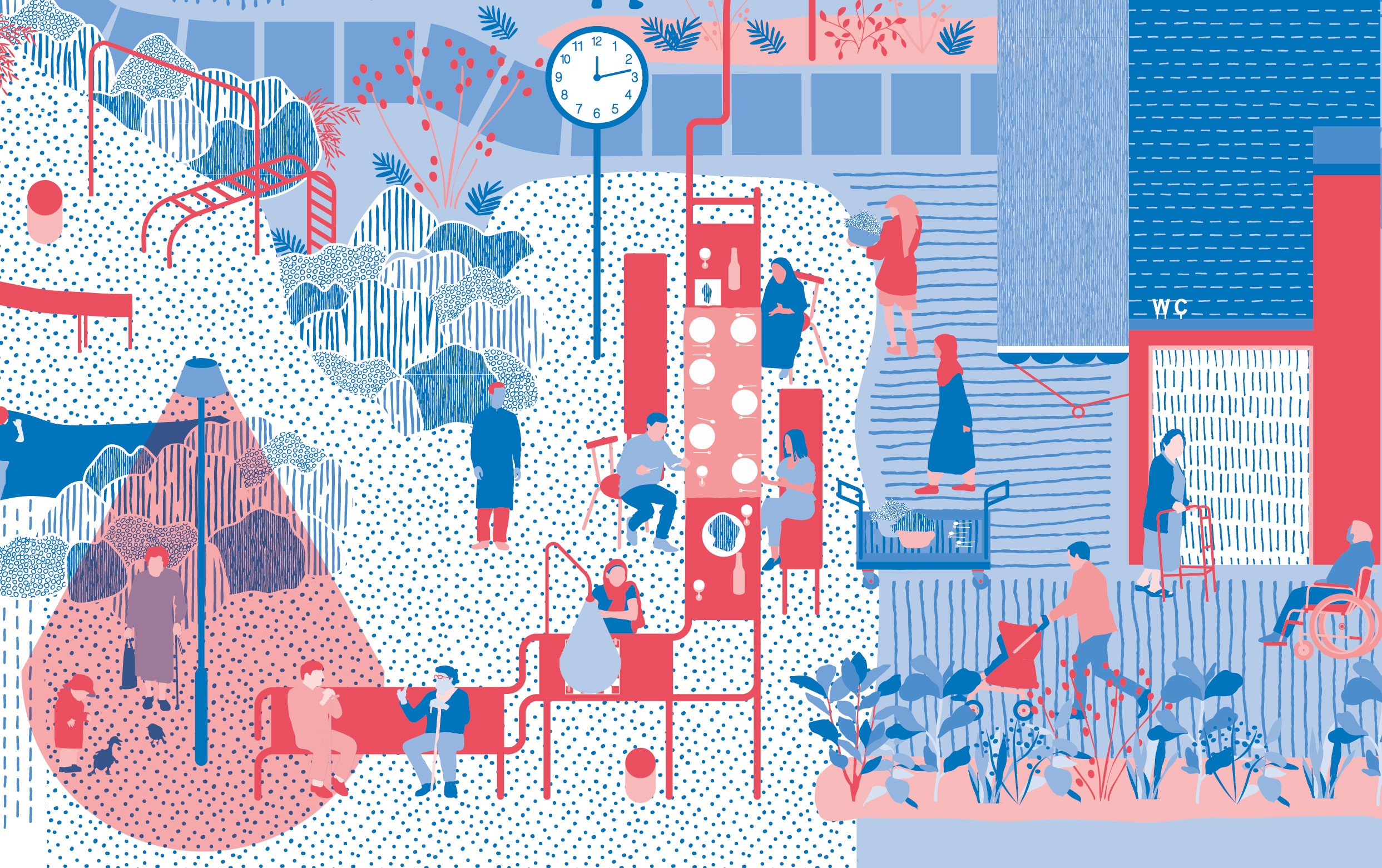
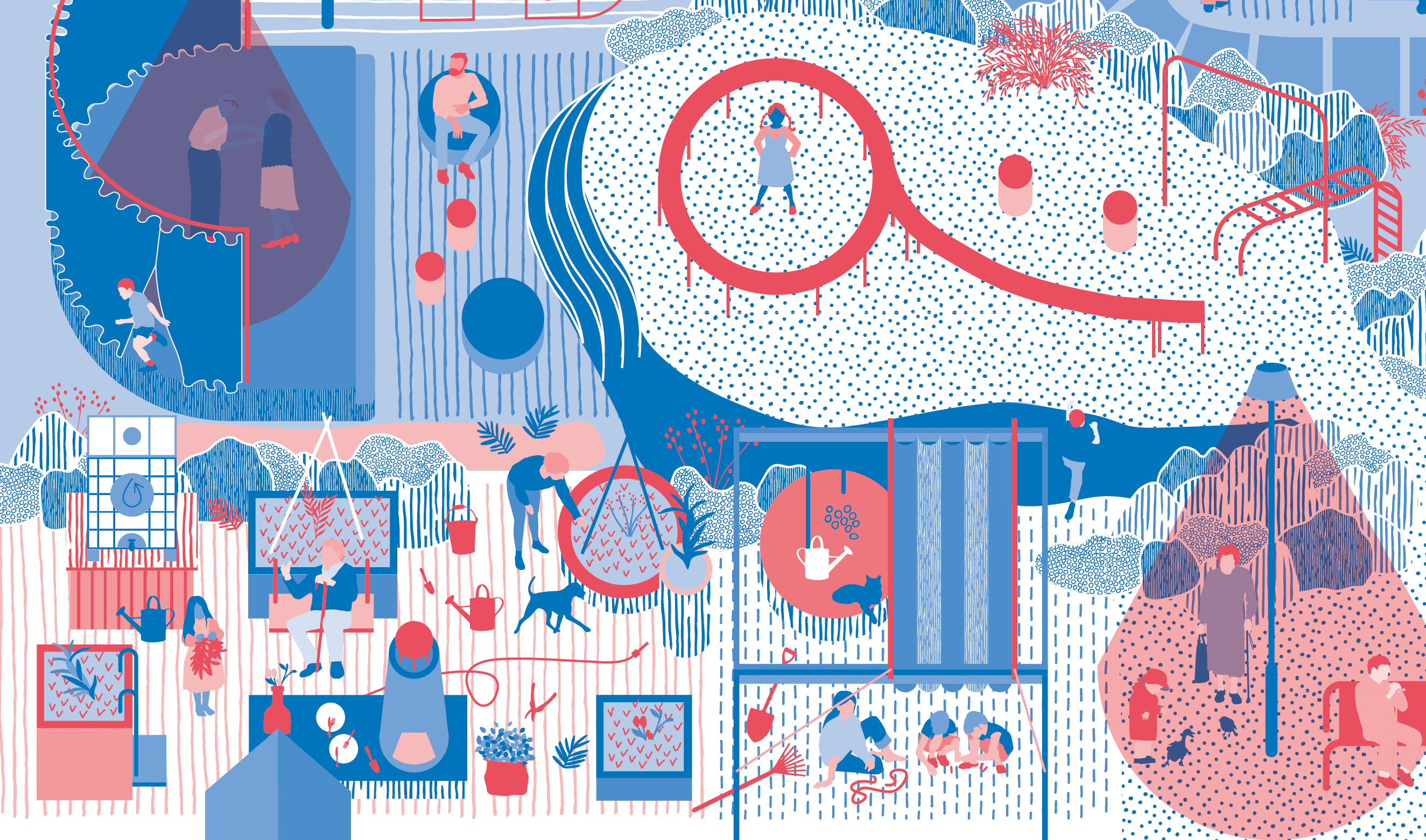
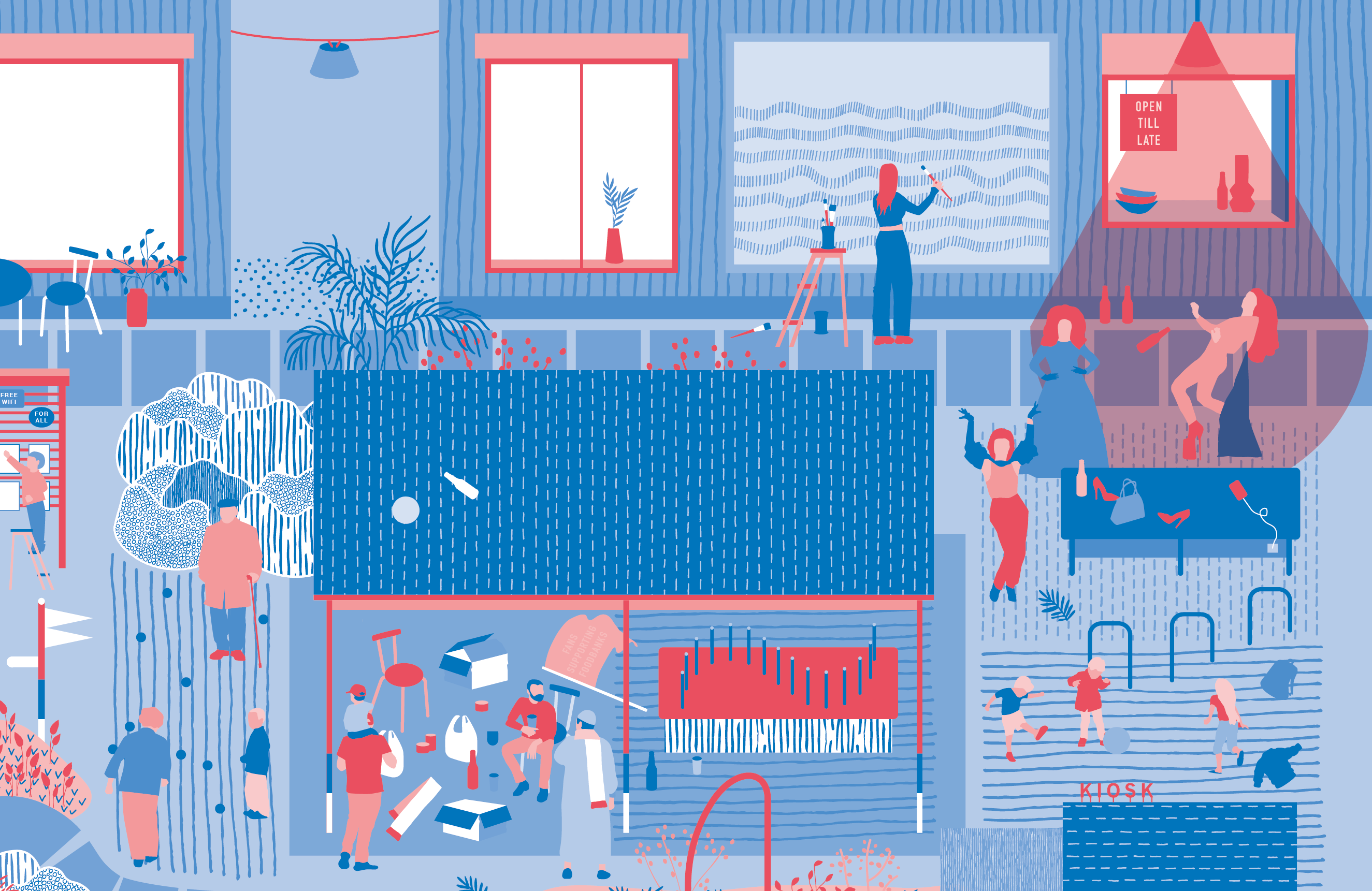
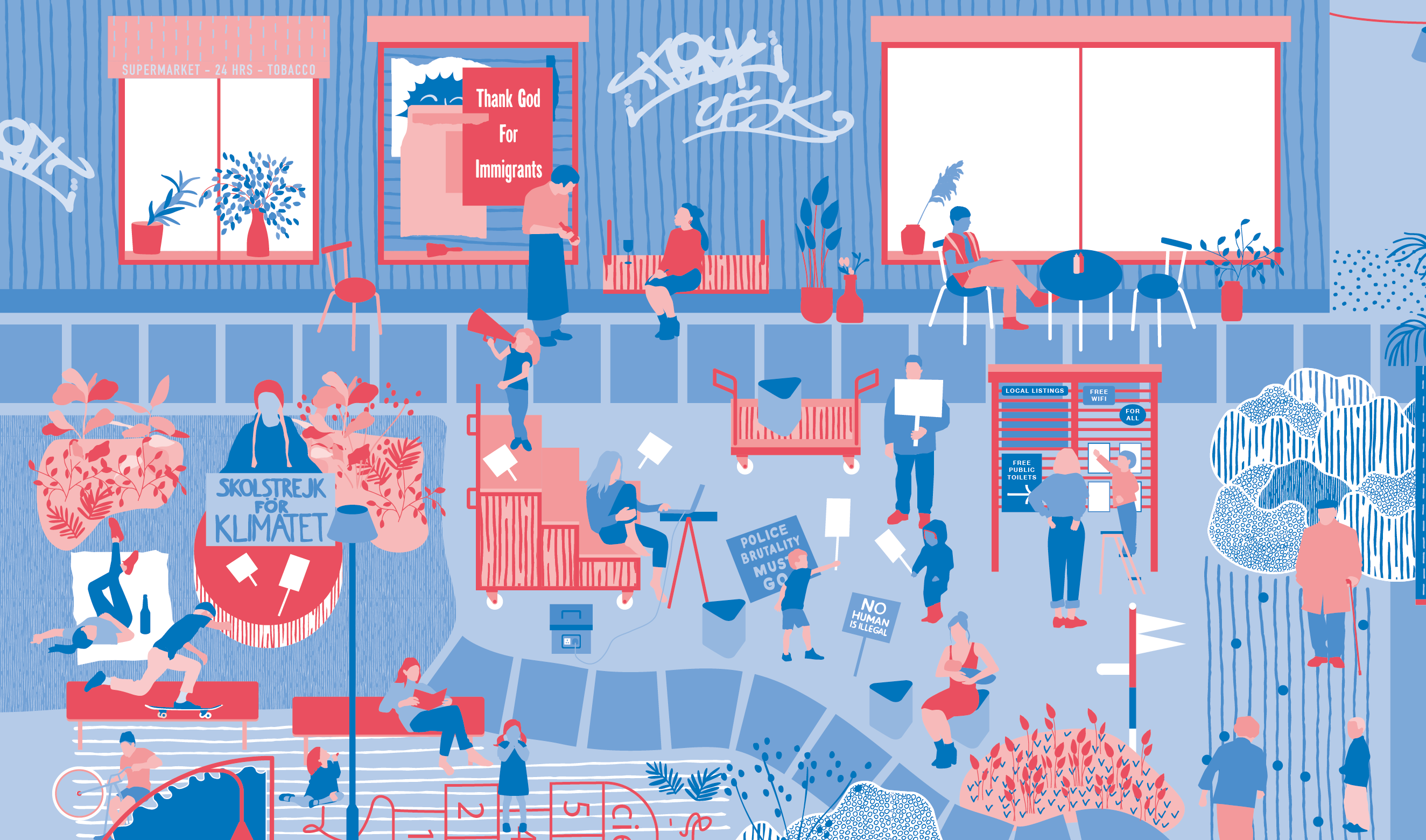
Return to Edition 2

